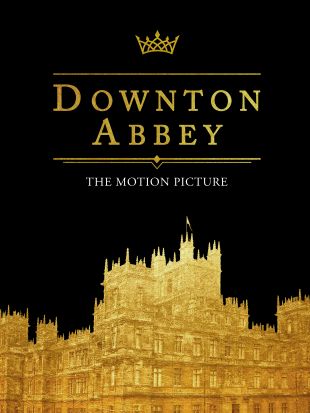
There is a very good reason Downton Abbey became such a widely popular television show. It was not just the picturesque set pieces and spectacular costumes. Downton Abbey was prodigious because it attempted to understand the divide between rich and poor, as well as the concept of generational change. However, Downton Abbey the movie, directed by Michael Engler and written by Julian Fellowes, falls well short of serving anything new to the proverbial table.
The film picks up close to the time the show left off. Lady Mary (Michelle Dockery) runs Downton now, with her father (Hugh Bonneville) and brother-in-law (Allen Leech) close at her heels. Old Lady Grantham (Maggie Smith) and Isobel (Penelope Wilton) continue to verbally spar with one another. Barrow (Rob James-Collier) is the butler, and Mr. Carson (Jim Carter) is retired. But all are shaken alive once more by the impending visit of the King and Queen of England.

The wide, panning shots of Downton Abbey's many magnificent facades were the heartbeat of the show. The structure itself needed to be highlighted from every corner to emphasize the upstairs/downstairs dynamic wreaking havoc within its stoic walls. In the film, viewers are repeatedly subjected to the wide pans and the soaring theme song. But it becomes painfully obvious that it's merely to play on the viewer's personal nostalgia and not on the class dynamics. Because the class dynamics themselves are driven into the mud.
With royalty descending onto Downton Abbey, one would naturally assume the filmmakers would sensationalize the obvious class differences once again. But instead, in a very poorly thought-out lower-class war with itself, the conflict of the entire first two acts exists solely between the downstairs workers of Downton Abbey and the downstairs workers of the royal house. The royal workers view themselves as superior to those at Downton and have no qualms with looking down on them and pushing them aside as they prepare for the King and Queen. Much to Carson's chagrin, he and his company plot their way into serving royalty-even if that means lying and drugging their fellow workers. It's a bit outlandish to say the least.

Clearly, neither the royal family nor the Crawley family even notice what's going on downstairs. Tackling the monarchal hierarchy in England would mean going down a rabbit hole that only another season of the show could hope to pursue. Instead, the film prefers an easy horizontal conflict between workers and finds lighthearted humor to fill in its voids.
Maggie Smith knows how to steal the scenes. Her grouchy, snappy delivery of zingers should be served in its own off-Broadway stint rather than a spinoff movie. Who else can get away with "Machiavelli is frequently underrated" or "I will lick the stamps myself," thoroughly bringing down the house each time?
But Old Lady Grantham is a prime example of how Downton Abbey allows secondary characters to shine, and at least that is very much true in the film. Anna (Joanne Froggatt) remains a gleaming beacon of worker dedication and morals. She's true to the ice queen, Mary, who clearly has no regard for her workers either as friends or even acquaintances. Mr. Molesley (Kevin Doyle) was a standout surprise. His awkward, nervous energy during the King and Queen's dinner is the hilarious highlight of the entire film.
The ultimate misstep of the film is its inability to do anything unique, which is ironic given that one of its central themes has been about a changing society and a changing world. But it's the same pans, the same music, and the characters are exactly where they've always been. In the show, the game of musical chairs would see everyone in a different seat or not in one at all. The movie merely has everyone get up and sit back down in their respective, assigned seating.

Nostalgia can get the ball rolling for a continuation of a story, but it is not sufficient in and of itself. For longtime fans who want another sip of the Kool-Aid, the film might still satisfy. For those who want more, Downton Abbey the movie fails to deliver.
